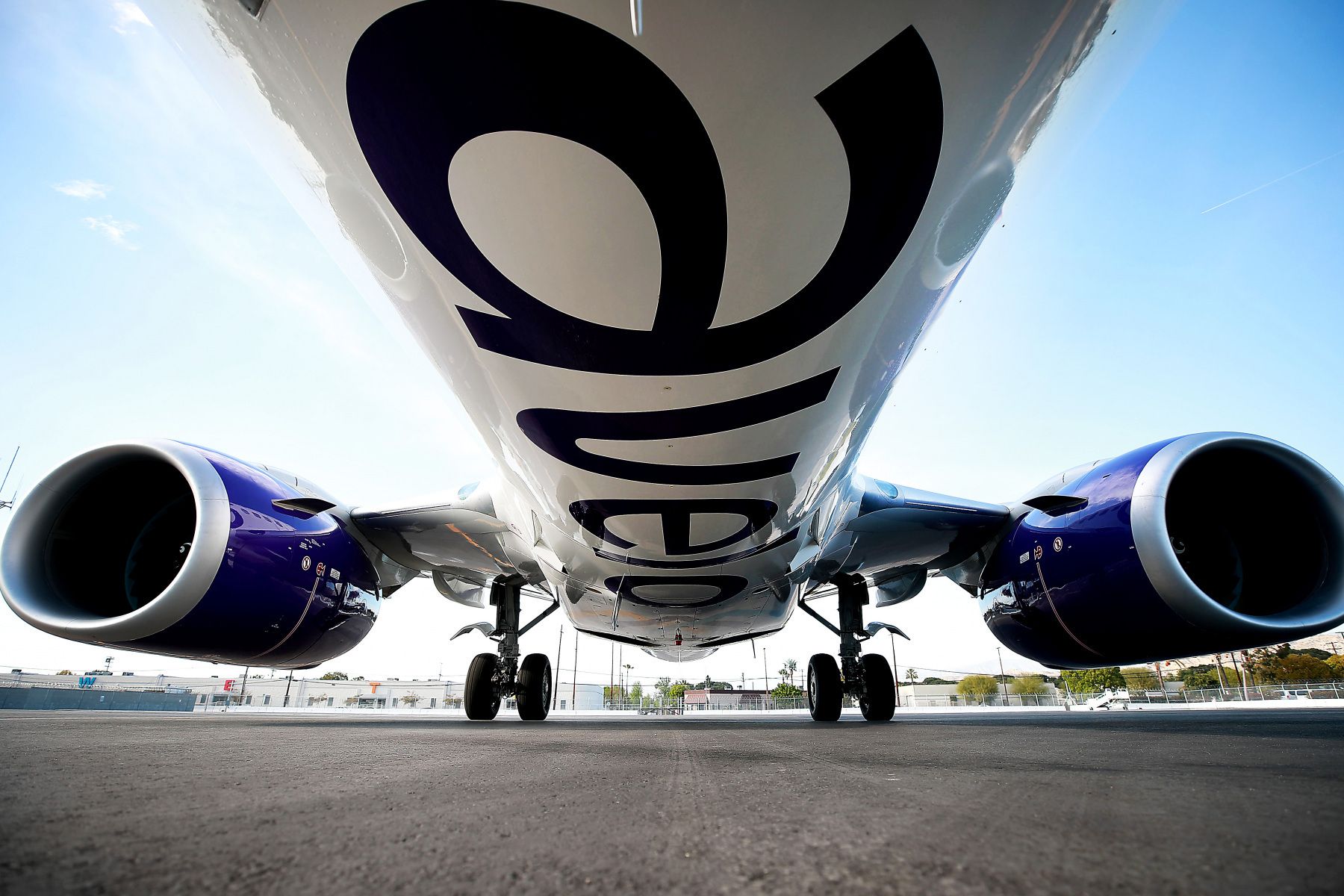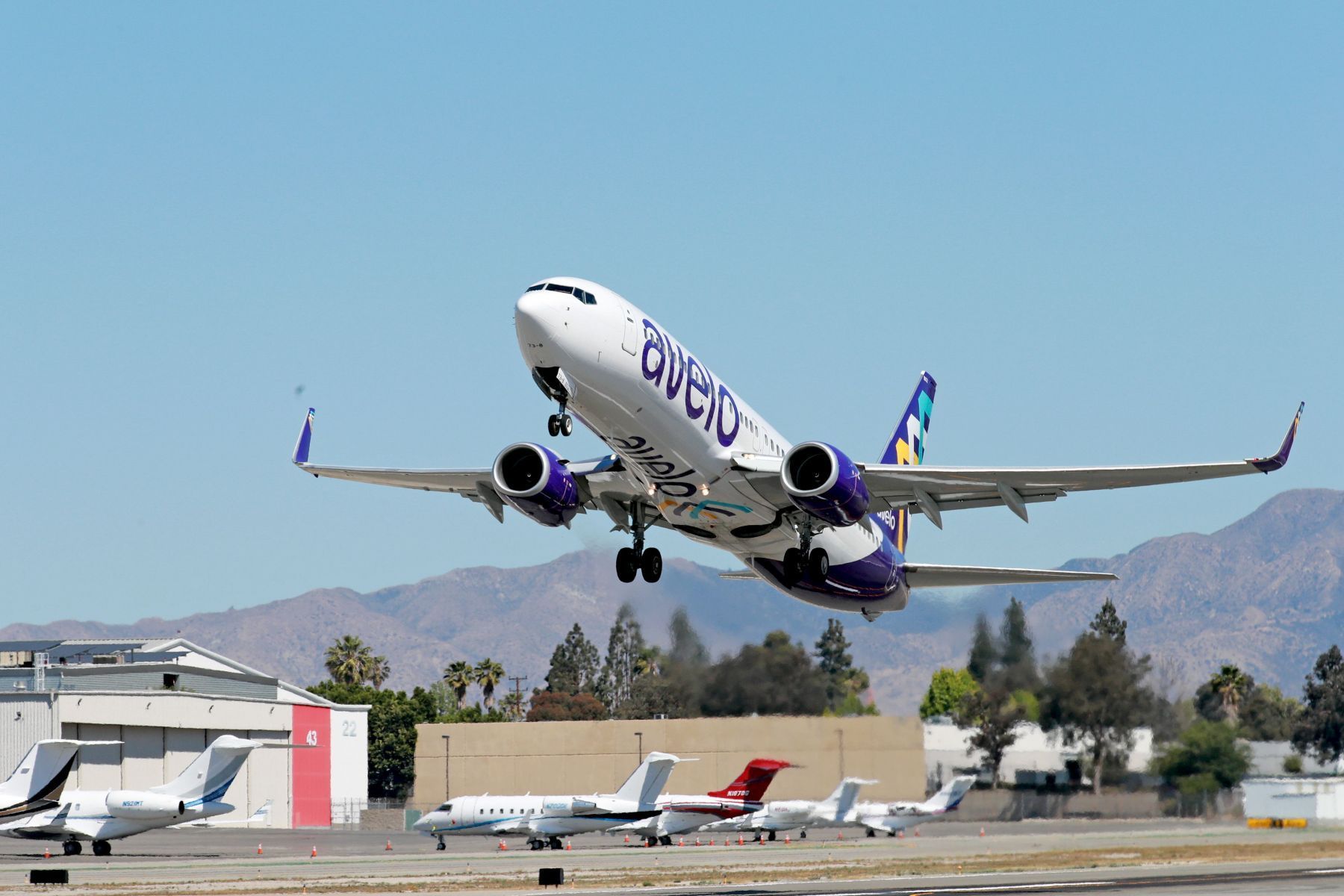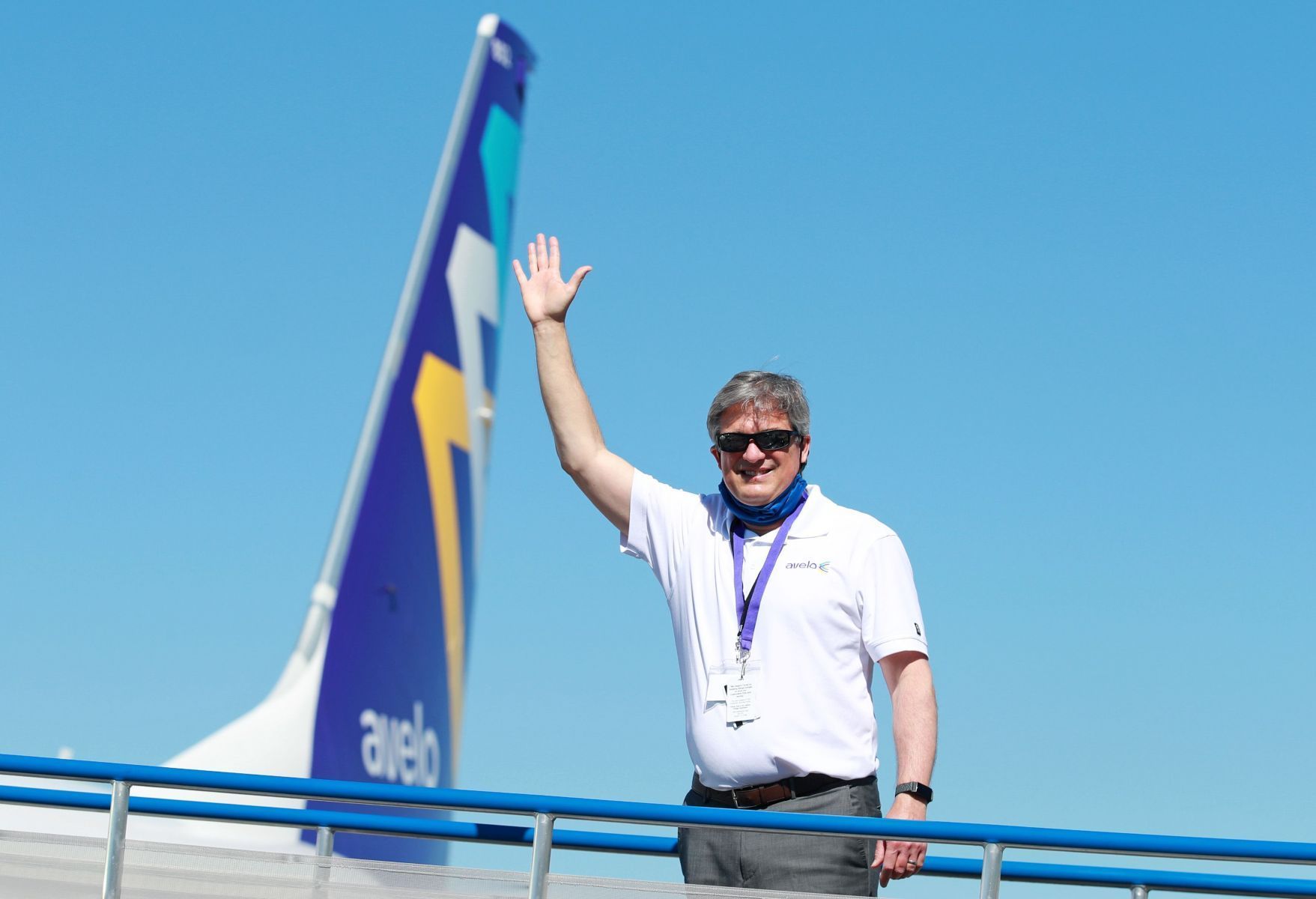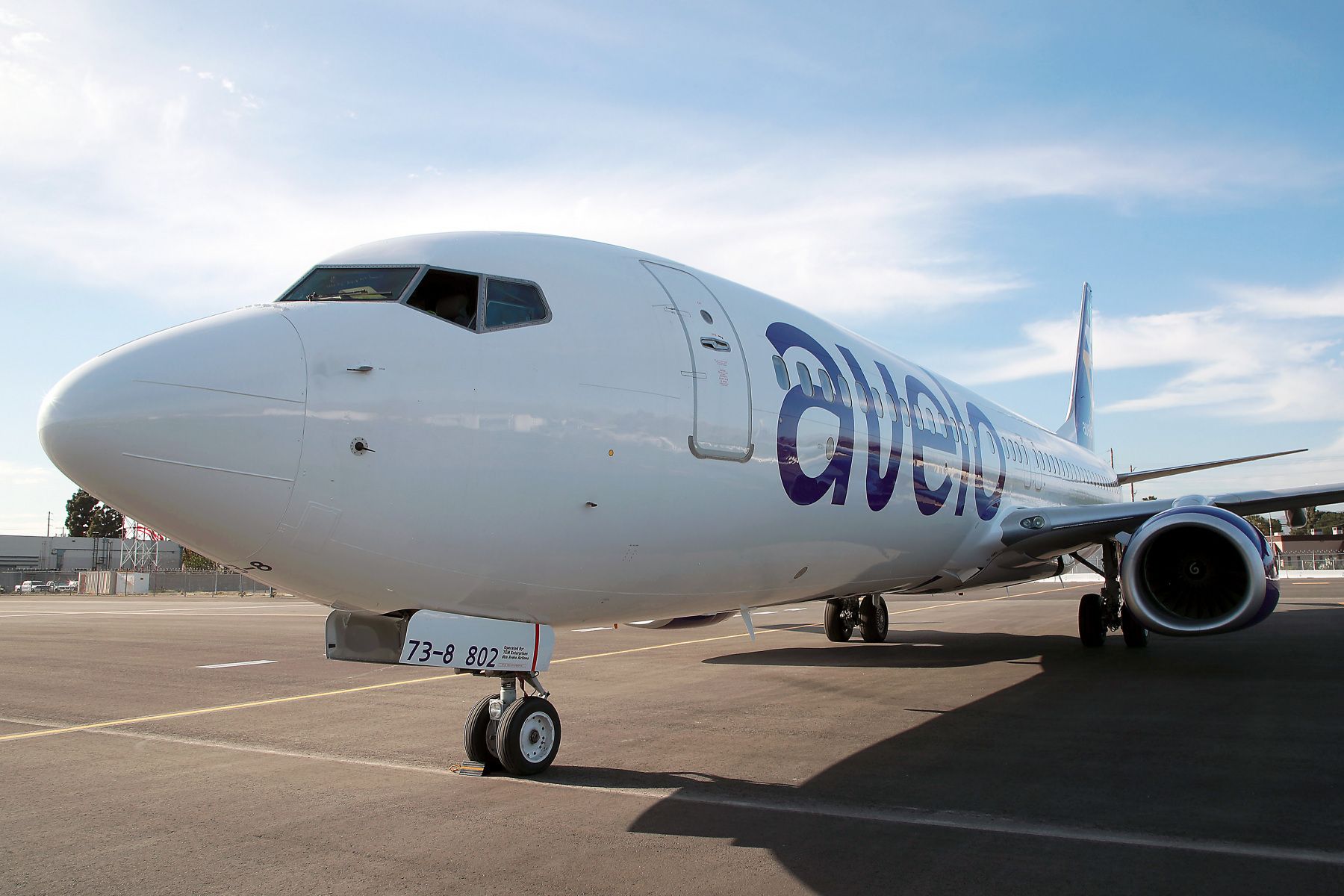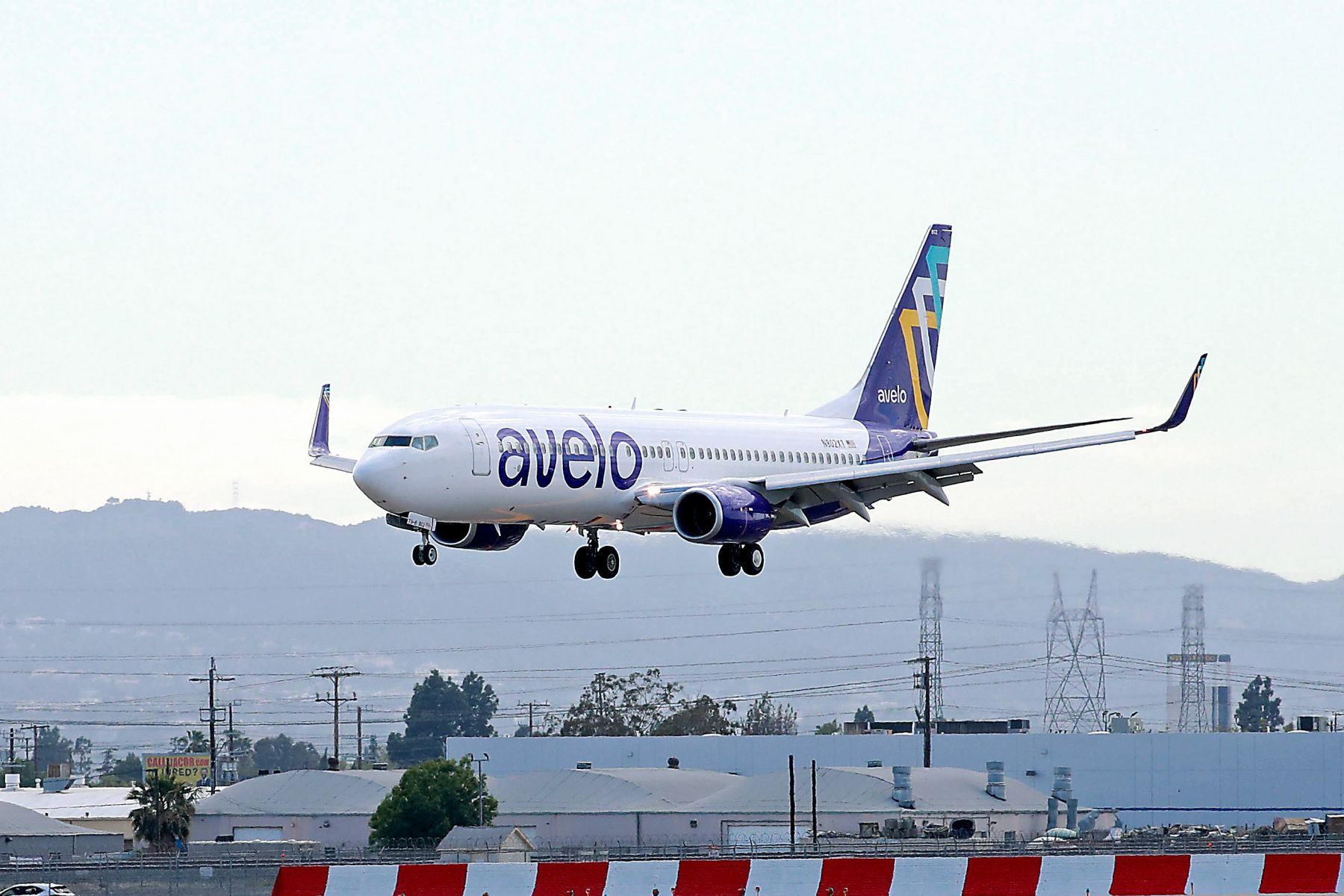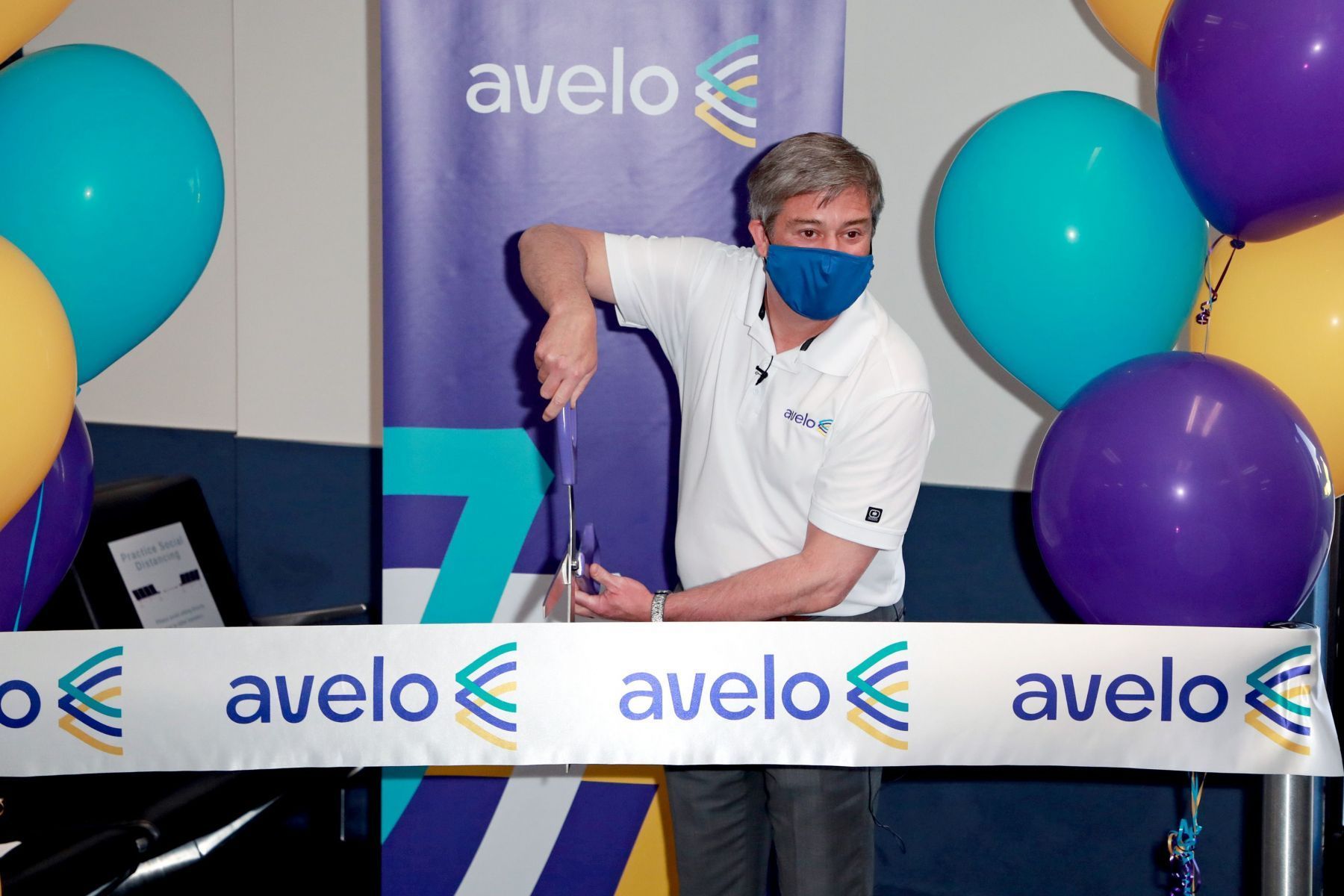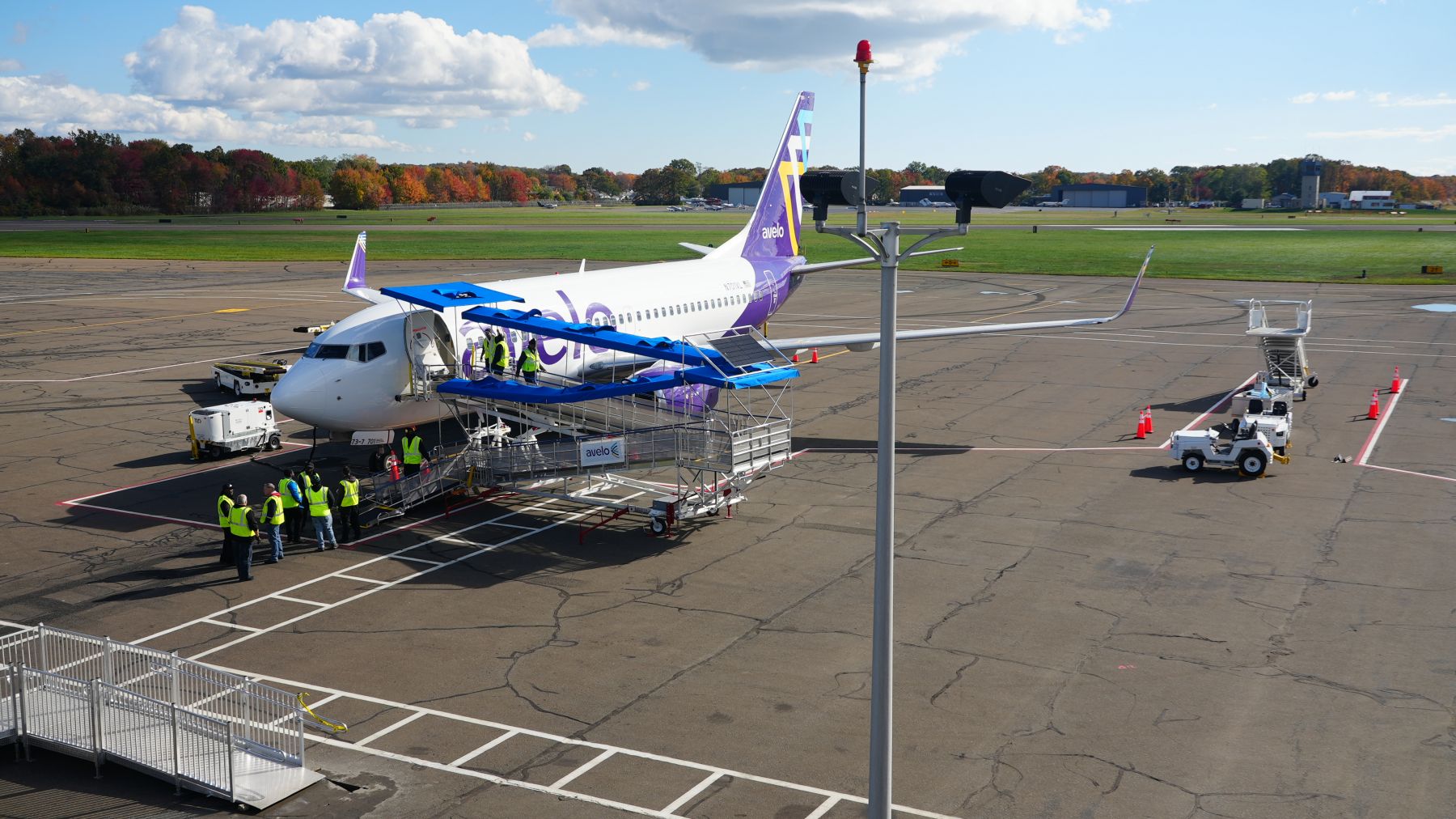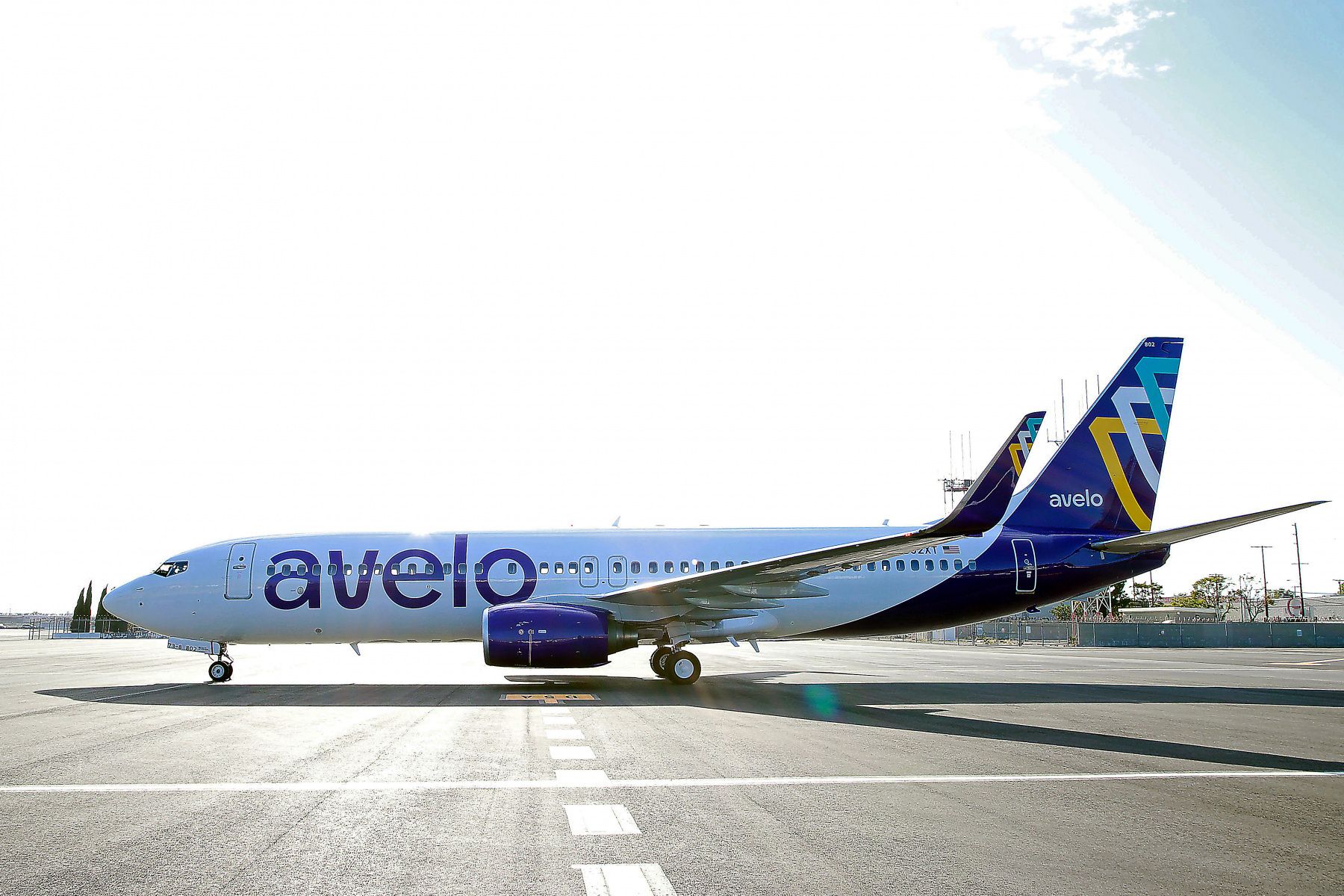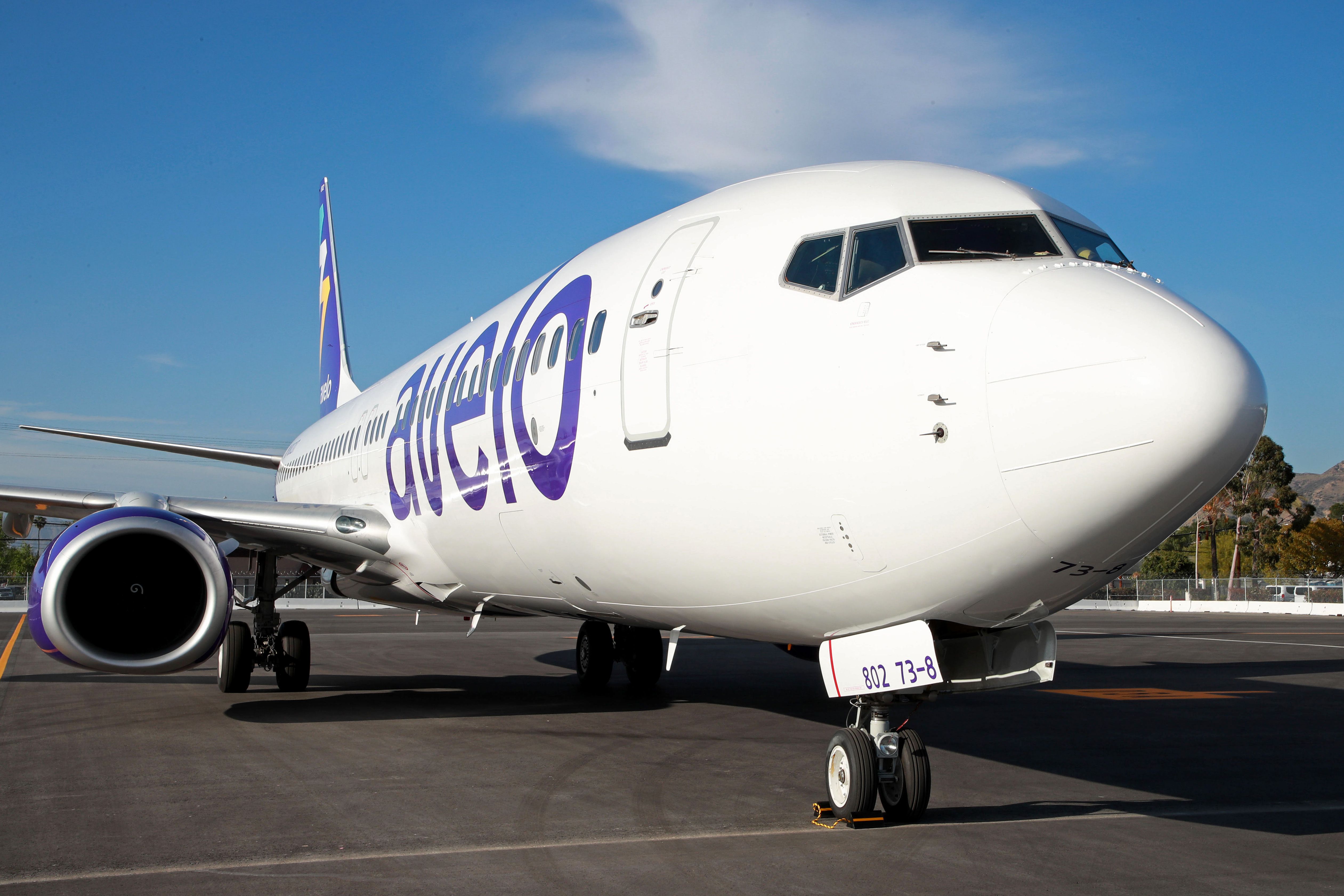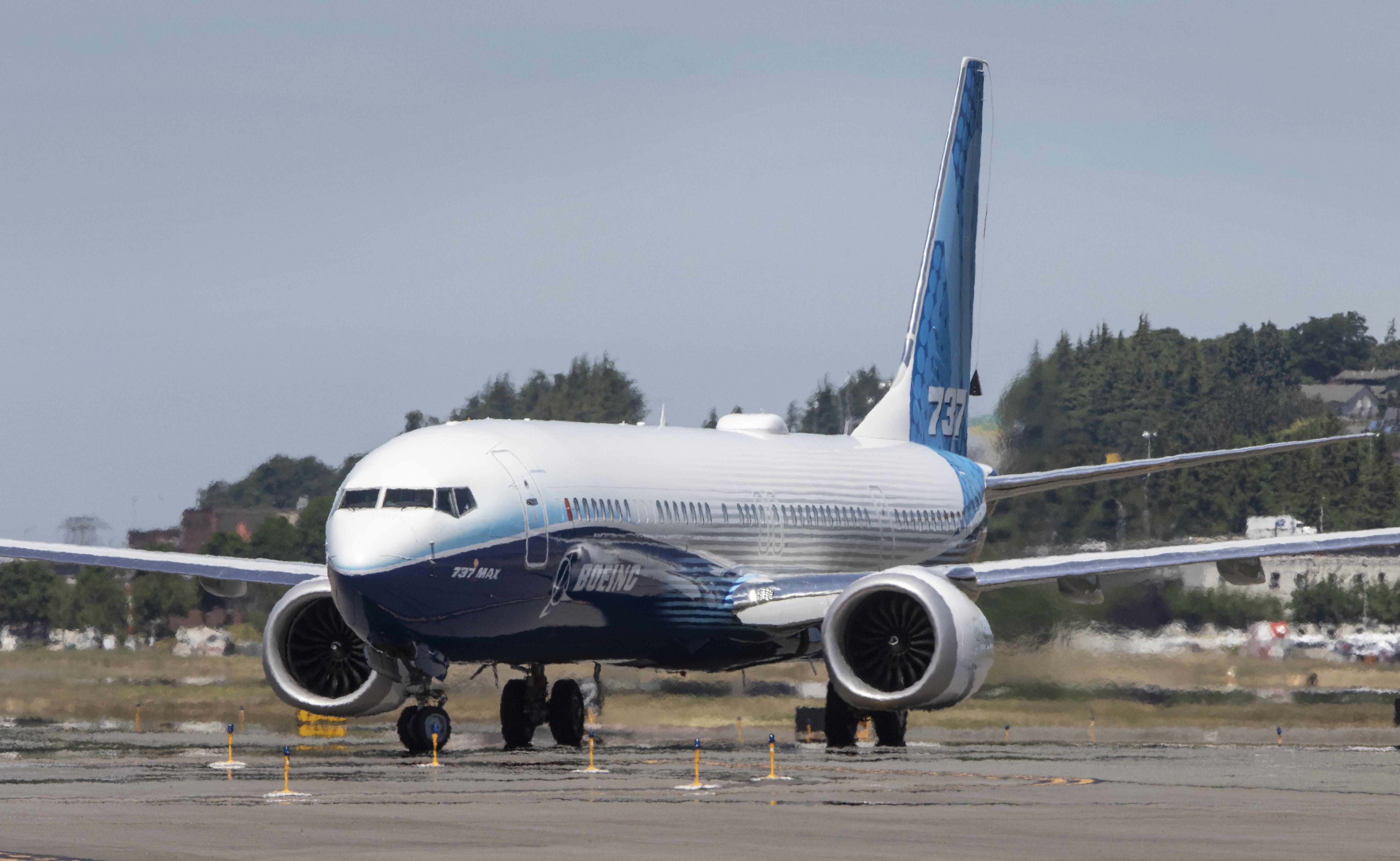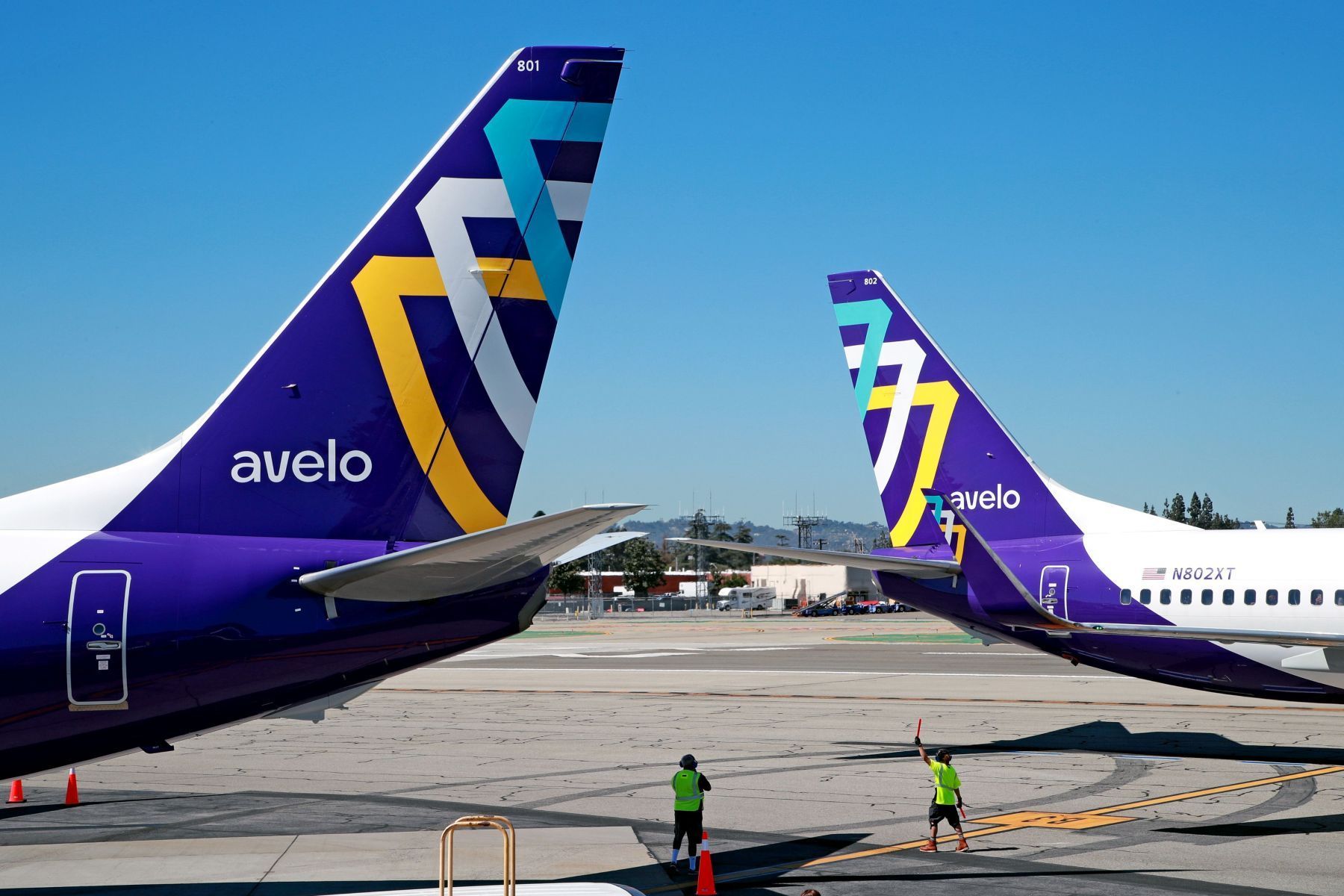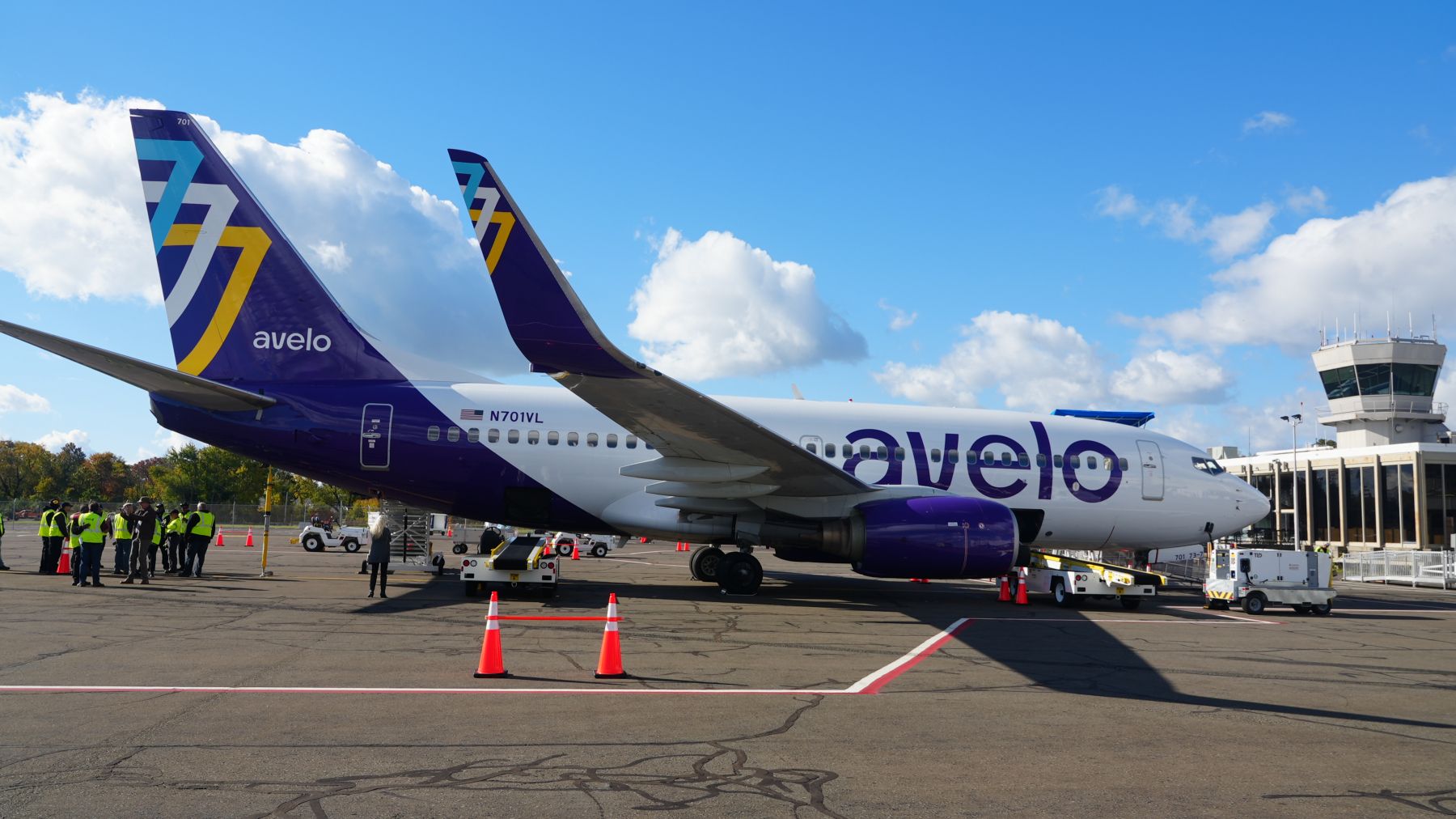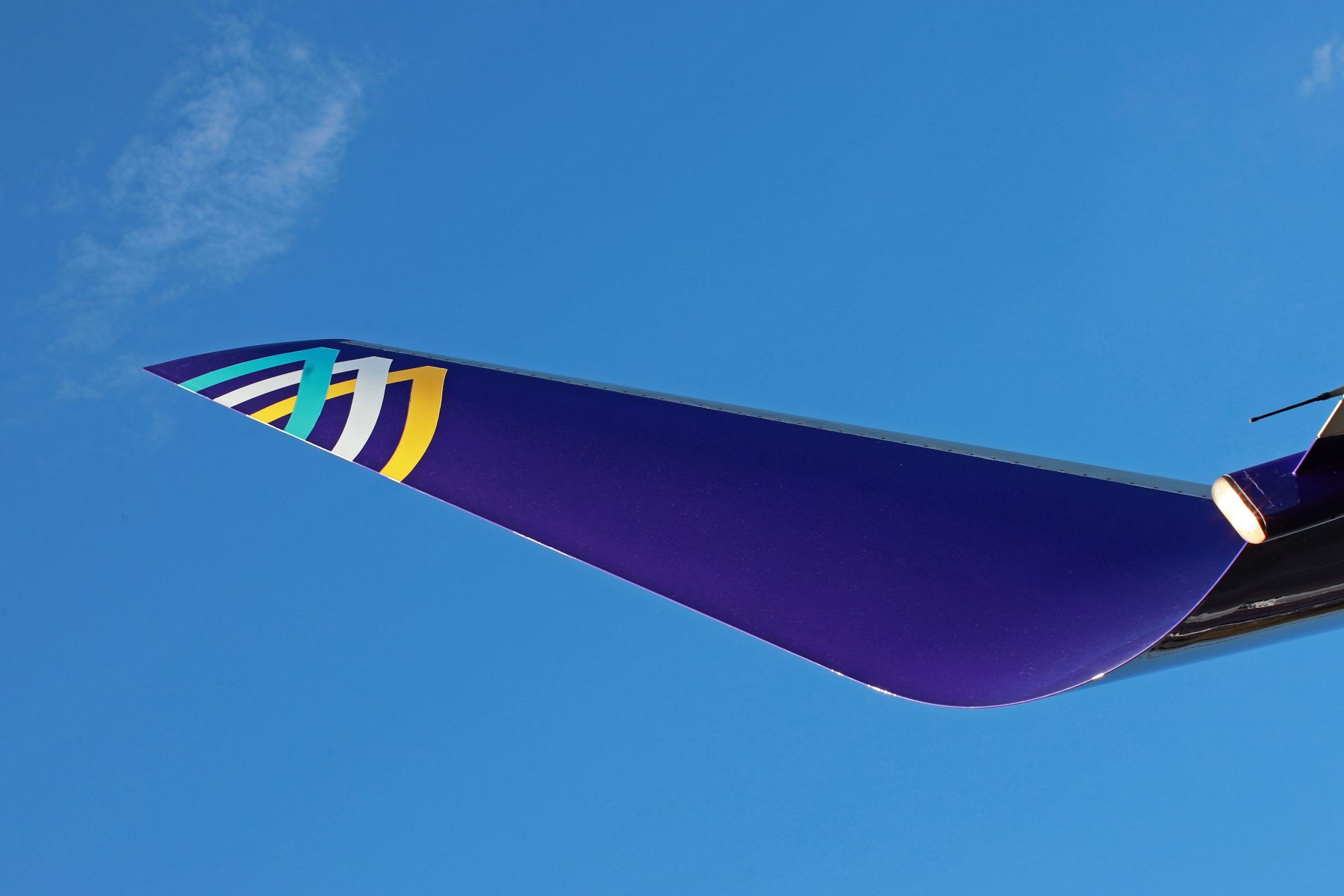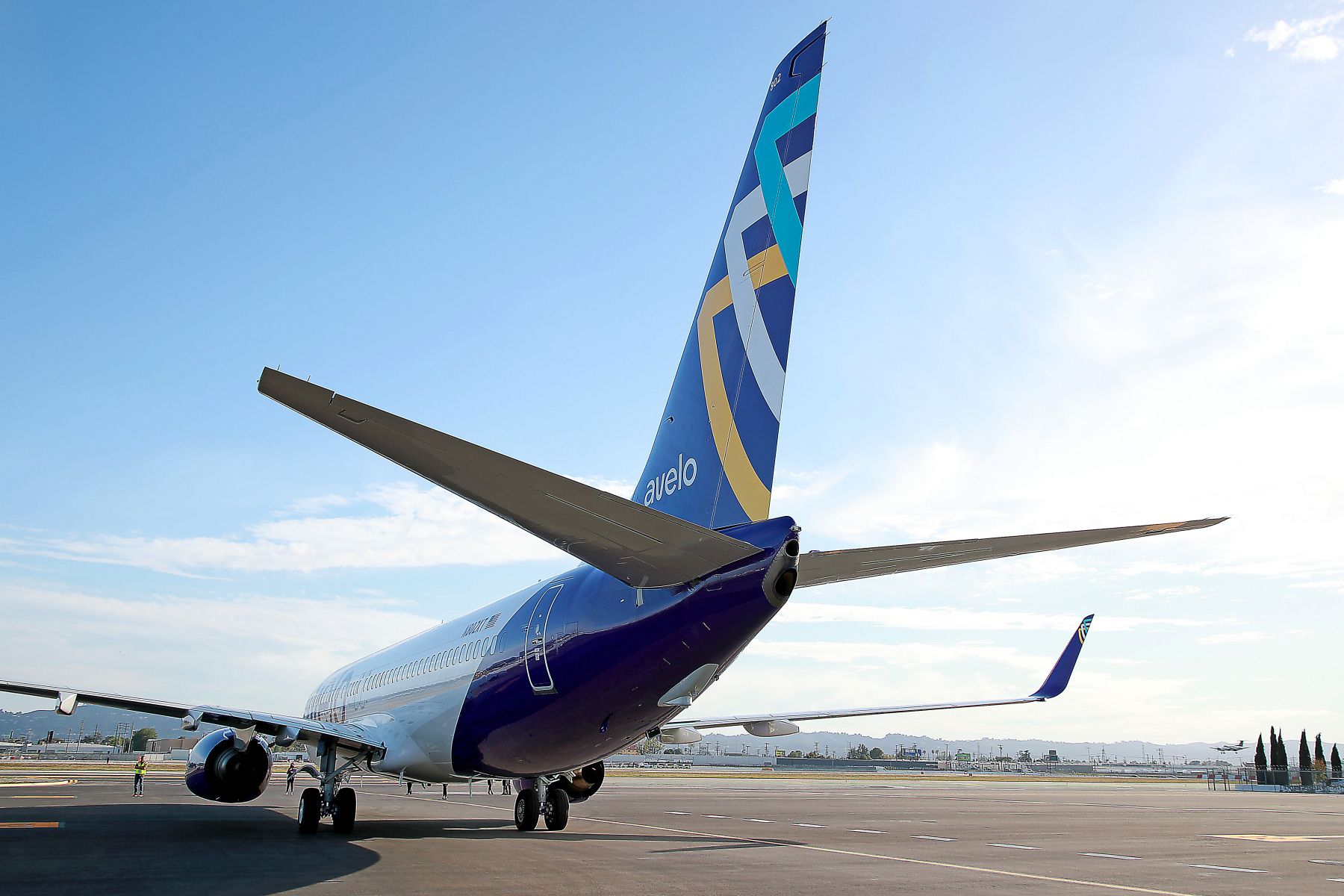Simple Flying recently sat down with Andrew Levy, CEO of Avelo Airlines, to discuss how things have gone for the airline since its launch in April 2021. It's not been an easy start for Avelo, and the airline is yet to turn a profit, but it has been operating in very tricky circumstances, contending with COVID and soaring fuel prices, amongst other things. We discuss progress so far, hopes for the future and much more. Here's the conversation in full.
Joanna Bailey
Andrew, it's really super to meet you at last. I've been a big fan of yours for a long time. And we've been following your journey with Avelo since day one. Thanks so much and welcome.
Andrew Levy
Thank you very much. It's a pleasure to be here and have a chance to speak to you today.
JB
Thank you. So, your track record in aviation goes without saying, but to recap for maybe anyone who isn't so aware of where you come from, you were co-founder and president at Allegiant Air for a really long time, something I know you're very proud of. You were also Chief Financial Officer at United, you're a board member at COPA. And way back when, you started your career at ValuJet. So what was it that made you want to launch out on your own and start your very own airline?
AL
Well, you know, it was actually that last experience that you mentioned, which was my first one, which was ValuJet, having a front row seat, just starting my career, and watching a small, growth airline that came out of nowhere, and built into a pretty big business. Just being just to see that firsthand about what happens when you put money with effort, and the entrepreneurial experience of building something from scratch – it was so exciting to me to be a part of.
And at Allegiant, it was very much similar. It wasn't quite the same as this, but it was another extension of that entrepreneurial experience, just be involved in something at the earliest stages. We took Allegiant out of bankruptcy, we had one airplane, and we built it into something that's really special and continues to do so well, after my departure there. And this is just going to the final step really, and where it's really kind of, you know, me; my money, starting it.
And, and then of course, it's not just me anymore. We’ve got a big team of people here and a whole bunch of people who believe in us and invested their capital. But I find it just really gratifying to be able to build something from nothing; to kind of create something that didn't exist before. And we're still on our journey. We're early stages of our journey really, we're really proud of a lot of things that we've accomplished so far, but we're not we're not anywhere near where we want to go.
But I'm, I'm confident without a shadow of a doubt that we're going to get to where we need to be, which is a company that is self-sustaining and that makes money. Because, at the end of the day, it's companies that make money that grow. And to me, that's the mark of a successful company - one that actually has a return for its investors and is able to bring lots of opportunities to our crew members, take care of our customers, give back to our communities and continue to expand and do more of the same.
JB
Fantastic, that's a great place to start from. But when you did start, it wasn't perhaps the best environment to start in, because you guys launched in April 2021. COVID, was very much most definitely still a thing. Was there any point you thought, you know, let's just wait a minute and not do this right now. Or, you know, what made you continue with your plan at that point?
AL
Well, I got involved in this, actually, I bought the company in August of 2018. And then it took about a year and change to go out and raise all the capital, and then sure enough, COVID hit. And in the early days of COVID, I actually felt like this could be a tremendous opportunity for a new entrant. The opportunity has, I think, been extremely good - not as good as I thought at the very earliest days of COVID. Because the US government offered just absolutely unprecedented levels of financial support for the economy as a whole but also for the airline sector in particular.
The way I saw the world in March of 2020 was, as I've described it to others, if you're familiar with Willy Wonka and the Chocolate Factory, is I felt like I had the golden ticket. And it's still been good, but not as good as I thought at one point. But it but it's still has been, I think, a really good time to get going.
And look, there's always reasons to say why this won't work. I mean, it's a tough business. There are a lot of people that have tried to do this and have failed. Most of those people who have tried to do this and failed are people that really probably never should have been trying it to begin with. This is a business that is filled with nuance, and it's an expert's business, and you really have to know what you're doing to have a shot at making it successful.
But there's always a reason why it won't work. And yet, you look back at Allegiant now, and it has 130 airplanes, and it's kind of obvious why it works and why it works exceptionally well. Ryanair; same thing. I mean, it's pretty obvious now why it works and why it works so well. But I'm sure Michael O'Leary would say that back in the earliest days when he joined there, there was nothing obvious at all. And there were nothing but naysayers and challenges to overcome to get to where he is now, or for Maury and my old team to get to where they are at Allegiant.
It takes time and effort, and you got to plow through, and you just got to overcome whatever challenges come your way. We've had a ton of them since we started. The pandemic actually turned out to be nothing compared to what we've seen with energy prices that we've experienced this year. So, you know, it's been one thing after the other, but we're still standing, we're stronger, and we're moving in a really positive direction. But you know, there's always bumps in the road.
JB
Really pleased to see it as well. So that launch date, that wasn't just about beating Neeleman to the post with Breeze, right? Because you were the first new airline in the US for 15 years, and wouldn't have been if he'd gone first. But you got there.
AL
Look, I'll be honest, we definitely did want to start earlier, because we did feel that that would give us a little bit more just simple press coverage and a little more brand awareness. So there was a little bit of that. But, you know, I think David saw an opportunity, just like I did. I think he's going after a different one than we are. I mean there's some similarities, without a doubt, but I think that clearly there's a little bit of a different strategic focus that he's taking.
My view is that in the US market, there's room for a lot more low cost airplane seats, and I felt that way since I left Allegiant eight years ago - there's room for more. We watch what they do. I have four people who used to work either directly for me, or are a step away a couple levels below from Allegiant who I know really well, who are there. And so I follow them closely as a competitor, I follow them closely as a friend, I wish them well. And I'm sure they'll do well. And I'm sure we'll do well, too.
JB
I'm sure you will. So let's fast forward to this year, you've been flying about a year and a half. But I really want to look at this summer. COVID is less of a worry now. But of course, you've got new challenges, not least the price of jet fuel. Let's address that first, how is that affecting you guys and your potential for profitability?
AL
I've described it is using a bit of an American football analogy - we're kind of on the five yard line, and we’re about to score, and the next thing you know, we had a penalty flag, thanks to Mr. Putin, and knocked us back out to like the 40 yard line. So now we're inching our way back to that point where we can get to the end zone and have that first profitable month and quarter.
As you know, and probably a number of viewers know, you can't just simply take your fares up overnight to be able to compensate for a massive increase in your biggest expense. It just simply doesn't work that way. It takes time to adjust your business to handle those higher fuel prices. I think there's no fuel price that doesn't work, it's just that when you have massive volatility, that huge step up, just takes a little longer to get there.
So we're in that process. We've been able to pass through a little over half of the fuel price increase to our customers in the form of fares, but we still have half to go. And at the same time, we're still pretty small, We have 11 airplanes and every single airplane we add at this stage has a huge effect in terms of being able to spread our overhead – it’s just the laws of small numbers, right?
So at the 12th airplane, you get to spread your overhead by a 12th. As you add more airplanes to get bigger and bigger, the increment of each one becomes a little less meaningful, but when the numbers are smaller, it really makes a difference.
And that's kind of where we are. We're getting a point where we can spread our overhead at levels that we will be plenty big to be able to drive a return. We're getting our revenue up to points where we can cover the higher price of gas than what we had at the beginning of the year. And part of it for us is also maturation of markets. When you're going into new markets, they take time to mature and the markets that are worth staying in invariably get better with time as your brand awareness continues to improve.
People recognize that, in our case at least, we're an incredibly reliable operator that delivers a great product and great service to our customers and as more and more people hear about it, experience it, it ends up driving more people with interest, and therefore the ability to get more on the fare, which is what we need to be able to deal with really high energy prices. So we're well on our way to doing it. But it's, it's been a challenge for sure.
JB
Yeah, absolutely. I think it's one that we're feeling the world over. But something that's maybe a bit more unique to you and the markets you operate in is the immense amount of traffic that the US has seen over this particular summer. The TSA actually screened more passengers this Labor Day than they did in 2019. But of course, you know, record passengers means record cancelations and delays. But I have an inkling you guys have been doing rather well on that front, haven't you?
AL
Yeah, we set out really to do a number of things that we thought were really important when I was thinking about this opportunity to start something from scratch. And, you know, really one of those things was to run just to a really top-notch, professional, reliable operation. And we've really done that - we've done a great job at that. And we've got the numbers that back it up.
We've had about a 1% cancelation rate since we started. This summer, it's been over 99% flown and we've been running on-time performance in the high 70%. That's counting every single flight, which is not how it's usually calculated. Usually, your first flights late, but the other ones are within the time, so they’re not counted - we didn’t want to do that. It's like if it's late, it's late.
When you strip out not controlled things like weather and things that are just outside of our control, we're running close to 90% on time, this four-day weekend, which was, as you noted, a bit of a landmark because of that. I follow the TSA, and look at the TSA numbers every single day. I have a spreadsheet that I’ve been updating for three years now. So I did notice that too – it was a busy weekend, we knew it would be and we did a phenomenal job. We ran, I think, about an 89% on-time performance, no cancels, so we did a nice job there.
We make sure people get where they need to go on time with their bags - that’s really important. We have the best bag numbers in the industry, so yeah, so far, so good there. But that's an area we've put a lot of attention to and focus on. I have an amazing senior leadership team across the board. But in the operations area, we have people with just tremendous experience and success, not just years but success in holding very high positions at brand name airlines like JetBlue, United, Delta, the old Northwest Airlines, ExpressJet - at one point the biggest regional operator in the United States with close to 500 airplanes … I mean, we got some really, really talented individuals who are rolling up their sleeves and getting the job done.
And of course, it starts with just having 500 plus crew members out there who are all rowing in the same direction and working together, as one crew. That's one of our core values is teamwork, and helping each other out with the end goal being to just do a great job for our customers. And so yeah, we've had a nice summer and especially in contrast with many others out there who have had their share of challenges.
JB
Sounds like you're doing an incredible job and must be very refreshing for people to find an airline that actually flies the flights, it says it's going to fly. So, you know, congratulations, you should be very proud of that. But I just wanted to touch on a little bit was we hear a lot about the staffing shortages. You know, I think in the US, it's more of a pilot issue over here, we've got issues recruiting the right numbers of ground crew, baggage handlers, security staff. But you know, getting people back into the industry after the big shutdown has been very difficult. Talk me through how it's been for you recruiting and retaining the staff that you need.
AL
Sure. And look, that's been challenging here too. And I think that we're just probably a little further ahead, because of the fact that we kind of opened up before most other parts of the world and so as an industry, and certainly for us, I think we've had to deal with those issues, but it's been several months since we overcame them. But is has been a challenge and, in our case, I think we've managed it quite well
But it's at a cost, you know. I like to say you can't fight the market. If there's people getting paid more and it's more competitive, then at the end of the day, you got to change your compensation now. One of the advantages we have is that we have one union who just organized our flight attendants not that long ago. One of the single biggest benefits that we have is we move really quickly, and we've done that. So we have increased our compensation for flight attendants since we started, for airport personnel, for technicians, for crew schedulers, and certainly for pilots as well. And that's allowed us to remain competitive from a compensation perspective and attract really great people.
But it’s not easy when there's lots of choices out there. I think that it's really important that you not only pay a competitive wage, that's certainly important, but most people, I think, stay places where they really feel like they're valued, and they're recognized, and they matter, and people care about them. And those are things that are important to us. That’s just who we are, and those are part of our values. So I think that that's helped us recruit great people. I think it's helped us retain great people, because they recognize that we're building something really special here, and they want to be a part of it. And so we've got a great thing going here and I expect that will continue.
JB
And I'm guessing the lifestyle for your crew members is probably quite nice as well, because you know, as we've, we've noted in our past coverage, all your planes go home at the end of the day, so I'm guessing all your people can go home to their actual homes, and there's none of this kind of hotel hopping that tends to be a staple of the aviation industry. That must be really nice for them.
AL
It is. It's interesting, though, because I think the most important thing that we need to do, and we've certainly, I think had opportunities to do better, and I think we've improved on this is, is making sure people understand that when they come in, because we're not for everybody. If you want to fly all around the world and stay in hotels and have that kind of lifestyle, well, we're just not a good fit. But if you do want to come home every night and enjoy maybe something that a lot of people would view as a nice kind of more of a, quote unquote, normal life where you're sleeping your own bed every night, and you can have more regular schedules, then we're a great place.
There's a lot of people who do like that lifestyle. So yeah, I think you’ve got to find the right people that like what you're doing and feel like this is a good place. But I think what we offer to people is highly valued by many, and certainly by plenty to be able to hire and retain just terrific people.
JB
Great stuff. And so before we move on from how this summer has been - 1 million passengers, just 16 months into your journey? That's pretty good going. So I'm guessing those 737s are flying around pretty full most of the time; talk to me a little bit about your load factors and how that side of things is going.
AL
I don't look back very much. I'm just focused on today and tomorrow. But every once in a while, it's kind of fun to look back, and that was that was actually a pretty cool day to think about the fact that we've carried a million people since we started - it's a lot of people. And so we're really proud of what we've accomplished so far.
Load factors, in general have been, I think, good. There's room there to improve, and we're not where we want to be. But we've been over 70% every single month since November, we've been over 80% the last two months, we were at 83%, both in July and August. The West Coast in August was an all-time high. 83% for both July and August was an all-time high for the system, but in the West Coast, it was the best month ever in the month of August, it's I think 78%. And we've had two other months this year over 80.
So where we want to be is 85% month in month out, and I'm convinced that we'll get there. We have pretty big airplanes, you know, 147 seats on the -700s, 189 seats on the -800, but that's how our business works – it’s mostly about volume. It's driving down the cost per seat, driving down the cost per customer, so that we can then offer a compelling low fare to get enough customers on the airplane to make the numbers work. Once you get to that point, it's kind of a virtuous circle that you get into and that's where we going; we're kind of starting to see that flywheel really move. We’re doing pretty well filling up airplanes, and we talked about how well we're taking care of our customers once we get them on the airplane. So it's going pretty well.
JB
And of course with this comes the incredible network growth that we've seen from you. So let's go ahead and talk about your network a bit because, for me, it seems like barely a week goes by without another route announcement from you guys or something exciting going on. Talk me through how you pick your new destinations and how you decide where you're going next.
AL
We have been busy, for sure. And look, part of the fact that we do offer a lot of routes is because we don't offer a tremendous amount of frequency on any given route. And so that lends itself to having a lot more routes than airplanes as an example. But we are adding airplanes. So we're selling now basically a 12 airplane schedule. We have four-five more planes coming. The first, the 12th airplane, we have learned today on the certificate, the 12th will be here next month. And then we have four more that are coming in behind that, which will result in a good bit more network announcements and whatnot.
We're still kind of working through those different options and see what we have highest conviction about, depending on the timing of those aircraft arriving. But fundamentally what we're trying to do is find opportunities in the market where we can offer a differentiated product. And usually what that means, and in every case, actually, what it has meant and I think will continue is, is unique city pairs, or unique airport pairs at a minimum. So we'd like to fly where others aren't, and we'd like to give customers more choice in the marketplace.
Whether that's a secondary airport in a really large metro area, like Burbank, in the middle of Los Angeles County -10 million people, our biggest county in the United States - but clearly the secondary airport to Los Angeles International, but a phenomenally convenient, easy to use airport. We're able to serve a number of markets from Burbank that did not have service when we announced service. Since then, we've had Alaska come in on a couple of our routes. But so be it. We're doing what we're doing.
In the East Coast, New Haven was just a really unique opportunity of an airport that had really become dormant. And we formed a really great public-private partnership with the manager of the airport, the New Haven Airport Authority, where we all put in money in and taken a risk together to kind of bring to life this incredible asset that's in New Haven, and that that's our biggest base. Now we have five airplanes there, doing exceptionally well.
The first time I went out there, I realized why it was going to work, because it was just so hard to get there. And in most cases, you'd fly to LaGuardia or JFK, which are really big airports, they're no fun to navigate in and out of. But then you'd have to go get a rental car, and drive an hour and a half without traffic and longer with, and you go to a place that has a lot of people. Every opportunity out there is different, but that one was really just perfect for what we want to try to do - find opportunities like that.
We're not going to own the New York metro, we're not going to own the state of Connecticut, but we can own a really nice piece of the state of Connecticut where there's a lot of people who like to travel, who travel often, they're affluent enough to do so, and we can save them enormous time and money. The convenience aspect of what we do is so incredibly valuable that it works and works really well. So we look for opportunities like that.
We have a base that we announced this summer in Orlando. That is in part about expanding our New Haven service by flying into New Haven at different times of day when there's room in the facility, because all of our airplanes have left in the morning. Fort Myers is the same; we're starting that base in November. But Fort Myers and Orlando both have many other airports that are in smaller communities in the United States that do not have service there.
From my Allegiant experience, that's what we did back in 2002, we started that journey and Allegiant has worked pretty well to date. All of this in the business is inspired by what we did at Allegiant so well, which is again, not try to compete with others, and just try to pretend that we can do it better, but try to just kind of find our own way, find little pockets of opportunity and be the big fish in the small pond, not the small fish in the big pond, and that worked really well there. It's working really well for us here at Avelo, it's going to work really well for us as time goes on, because I think there's just going to be more and more of these opportunities out there as the industry evolves in the United States.
JB
It's been really exciting to watch what you guys have done and to see how the network and the reach of your airline has grown over the last year and a half. And you know, obviously starting on the West Coast, and now the East Coast seems to be much more of a focus. But still, the two groups of networks are very separate, they don't connect with each other at all. Do you see transcon ever being a thing that you would incorporate into that plan?
AL
So, you know, I’d do transcon tomorrow if I thought we could make money doing it. Quite honestly, at the end of the day, I view the business pretty simply - it's an out-and-back network, which means the airplanes come home every night, and there's no connections, there's no throughs, everything’s L and D. And at the end of each month, it's really easy to see how any given route is performing. And routes that do well, we invest in. Routes that don't do well and show no signs of promise, we have to eliminate.
There's a lot of trial and error - by definition, we're doing things that hadn't been done before. Therefore, you're always going into a little bit of the unknown, even though you do the best you can on analysis, and try to obviously make your best judgments about that. But at the end of the day, you know, it's getting in there and looking at the numbers.
I think transcon is really tough to make work, especially with really high fuel prices, but it's tough to make work in this country because there's so many hubs that you have to overfly and every hub you overfly is an opportunity for there to be a lower cost connecting fare offered by legacy airlines. So from New Haven to Burbank, as an example, you can easily connect through Detroit, Chicago, Denver, Salt Lake, Dallas, even Atlanta to some extent. And so the more of those connecting points there are, it just puts yield pressure on you. And so that's why I'm not a big believer in transcon being viable for our kind of business. No doubt businesses that are carrying a lot of investment bankers that are flying back and forth between New York and LA, paying top dollar – that’s a different ballgame, but that's not who we are.
We liked Burbank at the time when we started it, we thought that was the best opportunity out there. And there was a moment in time where we could get into to an airport that's a very difficult airport to get into. New Haven was the same. In a perfect world, they wouldn't be on opposite coasts from one another. But that's okay, we're all used to managing across multiple time zones. And they'll each stand on their own two feet. And, that's okay.
Eventually, I do think that there will be opportunities to have airplanes kind of flow east-west with points in the middle. But that's not really a priority at all. My priority is just making sure that everything we do is working as well as it can work. And ideally, every single thing we do is profitable and nicely so and I think that it's when you have a profitable business that you have kind of earned the right to grow. And that's usually what happens, right?
You take care of the little things, you pick good markets, you do more good things than not, you make money, and then the world is your oyster. And you just keep doing it again and again and again. And the next thing you know, you look up and you're pretty big like Southwest Airlines 50 years later, or the 800-pound gorilla that is Ryanair, and what they've been able to accomplish. It's the same formula in that respect. It's just, you know, make sure you make money, because at the end of the day, profits are kind of what feeds all good things.
JB
Definitely, I think you'll probably get to give me a very similar answer to this question as well. But I've got to ask, you know, with your focus at the moment on Florida and South Florida in particular, how about internationally? Are you looking at anything outside of the States? I mean, Florida to Mexico, for example, must be a really hot market with opportunities there.
AL
We were not actively looking at that, but we absolutely will fly International, it's just a question of when not if. We are a flag carrier, which means we have all the designations that you need to be able to serve international points on scheduled service. We have lots and lots of experience amongst our team in terms of international operations. So I do expect that that will come and for us, international would be of the nature you described- close in, more of a leisure or VFR type focus, which is going to be mostly probably Mexico, Caribbean, those types of things. Certainly, there could be some possibilities in Canada, perhaps. But certainly I don't foresee ever deciding to go get really big airplanes that fly across the pond or anything like that. I don't believe in long-haul low-cost - That's not for me. I've never seen it work and someone else have to prove that one out, one day, maybe…
JB
Yeah, that's really interesting. We’ve written a lot on ‘will it ever work’ - I know there's a few airlines that dipping their toes in the water for the first time this year…
AL
The answer, I'm sorry, is no, it will not. But that's a whole other story. Maybe someone will prove me wrong one day. I'm rooting on anybody who's trying it; good for them, you know? But it’s not for me, that's for sure.
JB
So let's talk a little bit about this fleet of yours. So you've got these 737s, none of them are new aircraft. I think your average fleet age is something like 15 years. You know, I'm not criticizing that at all. Because I love Ryanair, they fly some 15 year old 737s, but they do fly some MAXs as well. So, let's talk about the MAX a little bit, is there going to be a place for a brand new airplane or a new technology airplane in your fleet? In the future? Do you think?
AL
I think so. It's just a question of when, certainly not now. I really like high-quality used aircraft, and I say that very purposely, because not all used aircraft are the same. It matters a lot where they've been, who's been operating and maintaining them. And that's really important to us when we pick airplanes to bring into our fleet. To me, a 15-year-old NG is, it's a teenager, I mean, literally, or a young adult. I'd say it's got a long, long life ahead of it. And, you know, these airplanes that we've been operating NGs that are averaging let's say 15 years, but as old as maybe close to 20, I've seen, in both at United and from my vantage point at COPA, I've seen absolutely no difference in the reliability of the aircraft from new to 20, or even 30-year-old NGs. They're just incredible machines, as long as you have a proper maintenance program, of course.
So I think you're not sacrificing reliability; what you're doing is you're just getting an airplane that has 189 seats. It just costs a whole lot less than a brand-new airplane with 189 seats. So look, the MAX today is more valuable than it was a year ago, because fuel prices are much higher, and so the fuel burn benefits are there. To me, those airplanes are all about fuel and ownership, and they cost more to own but you get the fuel burn benefits.
Ironically, with the MAX, I think there's a question about the engine maintenance costs and whether they will be similar to the NG or not. I think there's a real question about that right now as they continue to have some issues there that they're working through with CFM. But it's a great machine, and as long as we have enough of our network that can have a higher level utilization then I think the MAX would make sense for us – it's just a question of timing.
What I like about used equipment, and I like to trade off of having less leverage, is because then you don't have the same amount of pressure to keep the airplane flying. I like the fact that we don't have to fly 12, 13 hours a day to get industry-leading costs. We can fly eight or nine hours a day, and we'll have industry-leading costs. I really like that flexibility, and I think it's really important, especially when you're young as a carrier.
So I expect that we'll continue to add to our fleet with really great NGs. There's a lot of them out there. We expect prices to go down materially, actually, over the coming few years. So we expect to be in a really good position there to add to our fleet. We hope to transition into being able to own our fleet. That's just a balance sheet issue once we get to a point where we're our cost of capital is low enough and we have enough cash that we can put money down in terms of equity on airplanes. I love owning the fleet - I think that's absolutely where we want to be long term - and so I envisioned this will be our fleet strategy for quite some time.
But I would not be shocked at all if in, whatever it may be, three, four or five, seven years that we have some MAXs on the property. It's a great aircraft.
JB
Totally take what you say about good, well-maintained older vehicles, I drive a 20-year-old Toyota myself for the same reason and the fewer computers on board, the easier it is to fix when it goes wrong as well.
AL
That is definitely true. But you get to a certain size and you just can't keep adding used airplanes. It gets too complex, and I think that's certainly what's happened with my old company Allegiant, where they've started mixing some new equipment, and now they placed their own MAX order. We saw the same thing with Ryanair, you know, they built their business off used aircraft, and then they transitioned into buying new NGs. Once you get to a certain size, it really starts to get overly complex to manage your used fleet, and the predictability of having an order stream is really valuable.
The simplicity benefits of having every single airplane being literally identical is worth something. We're pretty good at that with the NGs. It’s a whole lot different than the MD-80s back in my old life. Because the NGs are more common now. Back then, MD-80s were almost like customized by the airline and they were all quite different from one another. NGs are much less so, and so that makes it a little easier.
But they'll come a day when, whether I like it or not, when we do what we hope we're going to do with hurting our cost of capital, delivering profitability which is going to result in growth, and when they get to a certain size, where, if we don't get there before, then we’ll get to a point where we'll have to go with new equipment just because the alternative is just simply unworkable. So that'd be a high quality issue to have to deal with.
JB
Definitely a good problem to face. So I know earlier this year, you guys were talking about doubling the size of your fleet, you got some investment. You've already talked a little bit about getting your 12th airplane later this month, another four when, by the end of the year? Into next year?
AL
I think what we'll end the year with, I'm very confident of 13. I’m a little bit confident of 14, and then 15 and 16 will be in the first quarter for sure. So good shot of being at 14 at year-end, and then we'll go from there. Right now we're very active in the market, but I also want to make sure that with what we've got on the property and what's coming, that what we're doing is working and working well.
I want to make sure our foundation is in really good shape before we keep growing because that I think is what gets you in trouble is if you're you don't have the core foundation working well. Then you’ve got to fix that while at the same time you got a bunch more airplanes coming at you that you got to figure out what to do with, and I really want to avoid that situation.
So lower fuel prices would be a great help for sure, not that we're not coping or counting on that by any means at all. But if something like that were to happen, then all of a sudden we can expedite our planning cycle, because then all of a sudden, we're generating cash, and that’s a different story. We'll get to that point, regardless of whether fuel changes or not. It's just a question of how quickly do we get there.
We expect right now that, the fourth quarter, we expect that to be a really good quarter for us. And we expect to exit the year nicely profitable for that period. I've said that before and then things have changed, which has made that a prediction that didn't work out. But we feel really good about our setup going into the fourth quarter.
JB
Good stuff. Do you have like an ultimate fleet size? You know, if you had to say, when we get to this many planes, then we'll stop or, you know, when we get to this many planes, we'll know that we've succeeded. Is there is there a number in mind?
AL
No, I don't really think that, no. I don't believe in bigger is better, I just believe better is better. But I believe if you're really good, then you become big - it just happens. But it's not the goal in any way. I think Herb Keller said something like ‘if you think small, you'll get big; if you think big, you'll go out of business or something like that. That's the general idea. But he's right. It's like as long as you take care of the little things, then growth just happens because you deserve it.
There will always be opportunity if you have a great cost structure and you have a highly profitable business, so always be opportunist. I absolutely always believe that that's the case; it will always be true. Our goal right now is just to get to that point where we are nicely, consistently profitable.
I am very confident that we are knocking on that door right now, and if it weren't for fuel prices kind of getting away from everybody, especially in the northeastern part of the US, which was particularly hit by jet fuel prices, we would have made money in April with five airplanes flying. With a total of six in the fleet, we would actually have had fully allocated profits. But instead of paying $2.70 a gallon of gas as we forecast in December, which was based on the forward curve at that point, we ended up paying like $4.50 a gallon. And when you have that kind of a shift, you just can't get the revenue there quickly enough - it just doesn't work that way.
We’re marching on a good path, we're getting there. And but I do believe that when we are there, that we will have no shortage of opportunities, just like we do today. I think those opportunities will continue to actually grow as the industry evolves in the US. And so I do think that if I were to look out in five years, I think we will be quite a bit bigger than we are today. But there's certainly no goal, there's no end state. My goal is just continuous improvement and making sure that we deliver on our customer promise each and every day. And I think if we just do that, then all good things that come from that will just happen naturally as a byproduct.
JB
Thank you. So you've talked a little bit about brand recognition, and getting to the customers to believe in you guys. It can be a bit of a struggle for new airlines to find their place in the market. But can you talk a little bit about the branding? Because I don't think I've ever seen this asked or heard about it? What's with the purple? And what's with the name of Avelo? What did the little zigzags on the tail mean? Is there a story to tell here?
AL
I’ve got to make up a good story to tell, because it’s not a very entertaining one. I can tell you that it's hard to name a company having gone through it, it's really actually a lot harder than it might appear.
We wanted to have a name that was short, because I like short names, we wanted to have a name that worked in Spanish, because I think that's really important for where we are in the world in the United States, and then with prospects of serving near International, much of which could very well be Mexico or Dominican Republic - two of the biggest leisure markets that are international markets for us in the US. And I wanted something that was distinct and unique, and something that certainly could be protected legally.
And so we landed on Avelo, it was inspired by ‘avenue’, which was really to represent the small hometown airport, kind of a neighborhood feel, along with the word ‘velo,’ which in Latin is swift. And it was just a combination of those two words, really.
The purple was, again, the same desire to be unique and different and to stand out. It’s interesting, because we hired some really creative people to help us with naming and creative to do all this, but they clearly could see that there was an opening in the US market and the North American market for purple, so they claimed it as their own. And so we were happy to do so.
I'm really pleased with how it came out, I love our branding, I love our delivery, I love the name. I think that they did a terrific job and, and am really pleased with the results. It's all those things - It's unique, it's different, and that's great, because it's that's where we want to stand out a little bit and make it easy for people to look at us in a different light.
One of the things that we wanted to do when we started this was to be a better ULCC, and have a different brand perception. I used to contrast, for those in the US who are familiar, I used to say look, with all due respect to Ryanair, who I have just nothing but tremendous admiration for what they've done, and I know Michael Caldwell, and I've spent time with Howard Miller and spent time with Michael O’Leary, just not as much, but Declan Ryan was one of our big investors at Allegiant and is still a personal friend. But we want to be like more like easyJet from a brand perspective – there’s a different brand perception of them even though they do many of the same things. And that's kind of what I want to do here.
I didn't want to be Spirit, with all due respect to what they've accomplished. But we want to do something that was viewed and perceived as better. So that was really important to us to do something unique. And also, of course, what really matters is how you deliver on that with your customers. And what was really important was to run a really, really good operation from day one, meet our commitments to our customers, which starts with the schedule. Be very transparent in everything we do.
Having a closed distribution system where people have to come to our website helps because you know that we're not hiding the ball on anything - there's no fine print. We want to make it really clear, we have a very easy sales or booking flow. We've just modified that, actually, we're just rolling out a new booking engine that just started rolling out. We have only a portion of our traffic on it. But I think it improves on what we have before. It's nice, it's fast, it's simple, it's easy to understand.
And then a big piece of it is getting to the airport and having at least on one end of every flight, you're going to be in a really convenient airport. A really convenient small airport. So if it's in Connecticut going out of Connecticut, it's Tweed, that's incredibly convenient. If you're in and out of Burbank, its Burbank. Now in some cases, it's that you're enjoying a small airport on one end, and you're flying into a place like Burbank, which is great. And with all due respect for MCO, our airport in Orlando, which is a wonderful airport - it's a big airport, and it's complex, and it's got a lot of the size and scale.
But on the other side of every fight that's coming in, you're coming in from either a Tweed or from Lansing, Michigan and Binghamton, New York, Newport News, Virginia, places where people can now fly out of their hometown airport instead of trekking to the nearest big airport a couple of hours away. And all that really resonates with customers, they love to be able to have a better, easier experience. Traveling is tough, and anything we can do to make it easier, less hassle, less time-consuming, is just really highly valued.
And then to top it all off, it was really important from day one, we wanted to make sure that we hired great people who were people who liked being around people, who are naturally friendly, caring types, because you can't train that. I mean, you can give tools to those people and train them on the technicalities of how to do their job. But you can't train somebody to be genuinely friendly if they're not genuinely friendly. And not everybody is built that way, which is fine.
We get incredible compliments from customers about our people, and it's mostly about our in-flight team. It’s always amazed me when I get a letter that someone takes the time to write that they've been so impressed by how they were treated, and how they were made to feel. It's really special to get those, and I've gotten many of those. That's really gratifying to see that we've actually done a lot of the things that we set out to do and we felt were really important and would really distinguish us is not just simply offering a low fare, but to do it in a way that people really valued and really felt good about traveling with us and therefore, of course, want to keep traveling with us.
We've done that. We’ve got a long way to go. We’ve got a lot of hard work to do. But we're off to a great start. We have a terrific foundation, and really proud of what we've been able to do in that regard.
JB
That's great. And I think that customer loyalty is so important when you've given them that great experience, they're going come to you next time, they're going look at your website first. Is there a plan to keep those people rewarded, maybe through a loyalty scheme or some sort or a point scheme? Is that in the future plan?
AL
That’s a 2023 project. The first thing we had to do was build our own booking engine. We sit on top of Radix, which is a Sabre res. a system that's targeted toward a LCC type and smaller carriers around the world. We chose Radix. And so that's the res system and we use their in-house booking engine, which is a good booking engine, but it's a bit limited in terms of what it how it can merchandise.
So we wanted to build our own front-end system, our own booking engine that we control the code to and would allow us great flexibility in being able to merchandise and connecting with others through API's and offer different products and services, and also tag on to it a loyalty platform and develop a loyalty program.
We will do a loyalty program. It'll be a points-based program. It will not be a frequent flyer program. But I've been doing something that I think customers will find has great value and great utility. And I think those businesses are really exciting and create a lot of value in and of itself as its own business. So we're really excited to get deep into that space.
I think it is important, but I think that at the end of the day, we get a tremendous loyalty today by just simply taking care of the those little things and doing it really well each and every day. And it's amazing, you don't have to bribe people to come back to you if they just know that they can rely on us, they're going to get a good deal, we're going to get in there on time, we're going to treat them nicely. That just goes so far.
And I'll tell you, we don't cater the airplane; we give out water on request. So we're not doing the things that a lot of people think you have to do to make people happy. We don’t have TVs, we don’t have free Wi-Fi - we don't have Wi-Fi period - we don't have snacks, booze, food, clubs, we don’t have any of that stuff. But what we do is simple basic transportation, on time, delivered in a very professional way, with really nice, friendly people on the airplane, and you get to enjoy, at least on one end of your travels, a really easy airport experience. And it’s just amazing how valuable that is, and how much customers love that.
JB
Great, and your bag comes with you all the time…
AL
I wish I could say always. My goal is literally zero bag mishandles - that's probably aspirational. But we're pretty close to zero, but I don't want to say that we haven't had our issues there because we have. In my mind, getting you there on time without your bag, you might just as well have not travelled - that's not part of the deal. Right? I want to get there on time with my bag, thank you very much, and we’re doing a good job there. We could always do better, but we’re starting from a great place.
JB
Definitely, look I'm aware that I'm taking up a lot of your time today, so I want to just bring the questioning to an end. But I've got to ask you this thing. I'll get shot if I don't, and I hate talking numbers, but you're a numbers man, the well-trodden path for an airline like this, that sets up independently and becomes profitable, which hopefully you will do, by the end of this year or beginning of next year, the next stage is often an IPO. Is that your plan once profit is achieved?
AL
That would be I think, the most likely outcome. While I started with buying this little charter airline, myself, obviously, to get to where we are now, I have a lot of partners and other leaders that are along with me making this all come to life. And when you take investors’ money, obviously they want one day to get that money back, and then a lot more, hopefully - a big return on it. And so, to me, until that happens, that part of my job is absolutely not done.
We need to make sure we take care of our capital providers, because without them having the faith to invest in us, in this vision, we wouldn't be here. And so usually in the airline sector, at least in the US, usually what that means, or at least usually the best outcome is with a public offering. I think that we'll have the size and scale to do that by late next year, early 2024.
We will certainly have a great growth story ahead of us, and it won’t be hard to explain all the growth opportunities that are out there as the US industry has become so consolidated and might become consolidated again. But we’ve got to make sure we're nicely profitable. And we're showing a lot of momentum there. Right now, we’ve got a great story to look at, but we're not there yet.
But I expect we will be there, and then, if we do what I think we're going to do, then yeah, I hope by this time next year, we're starting to think about when is the right time to do something like that, and give our shareholders the opportunity to get the liquidity that they're going to want.
Joanna Bailey
Thank you. I really appreciate your time today. Thank you so much for being with me. I'll give the last word to you. Just tell me about your focus between now and, I don't know, the end of 2022. What's your hopes for the rest of this year for Avelo?
AL
So my number one hope is no more bad luck for about six months, just no more COVID variants, no more invasions that drive up fuel prices, no crazy unique, once in a lifetime dislocations of jet fuel markets. That would just be great. Six months of relative calm would be fantastic. And if that happens, we'll be in a great place.
I feel like we've taken one body blow after the other and yet, we're still standing and we're not going anywhere. So just get to a little peace and quiet for a bit, then we'll be in a great place. So that's my hope.
But my plan and my focus and our team's focus right now is to just keep doing what we're doing, because what we're doing is really good. We just have to keep at it and keep at it and just keep getting better and better and better each and every single day. We've got the calendar at our backs, you know, we have a lot of Florida exposure. Fourth quarters are really good place, a really good time of year to be with a big Florida exposure. So we've got the calendar at our backs once we get through September, which is always tough, and we've got a lot of good things going. I'm hoping for a little bit of smooth sailing for a few months, that would be pretty nice.
JB
Oh, well, best of luck to you. And I hope you do get that smooth sail to the end of the year. Andrew, it's been an absolute pleasure talking to you. Thank you so much for joining me today.
AL
Thank you very much. Really the pleasure is all mine. Take care. Thanks.

